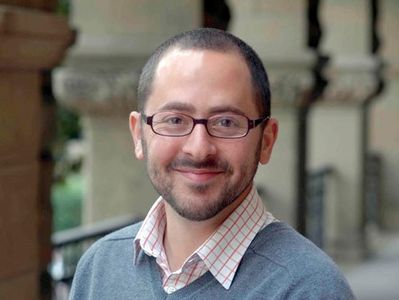Menchik Testifies Before Massachusetts Special Commission on Combating Antisemitism
Professor Jeremy Menchik testified before the Massachusetts Special Commission on Combating Antisemitism at the Massachusetts State House in Boston. He outlined how Massachusetts can create inclusive campuses while defusing the Trump administration’s misuse of Jewish identity to erode civil rights. Menchik began his testimony by emphasizing the importance of scholarship to address the challenge of antisemitism.

Below is an excerpt from Menchik’s official testimony to the Massachusetts Special Commission on Combating Antisemitism.
“I am the Director of Boston University’s Institute on Culture, Religion, and World Affairs (CURA), the oldest center of its kind in the US. Every week we workshop research on religion and world affairs. We are experts on religion and world affairs because of our scholarship, not because of our personal identities or anecdotal experiences. Having a bar mitzvah made my parents proud, and my being the target of antisemitism has gifted me with resilience and skills at dealing with bullies, but neither makes me an expert on antisemitism. My expertise comes from teaching, and publishing research tested through the peer review process. The researchers at CURA are diverse – Jews, Muslims, Christians, atheists, sociologists, anthropologists, and even economists – but what unites everyone’s work is a commitment to engaging with serious scholarship, high quality data, and sound research methods. Because otherwise our findings have no validity.” –
Menchik went on to recommend an empirical approach to combatting prejudice: “We need a data-driven approach to fighting antisemitism. Reliable data on antisemitic attitudes and hate crimes must be the backbone of the commission’s work. By relying on data about antisemitism that is widely known to be dubious, the Special Commission misrepresents the reality of antisemitism in the Commonwealth and invites the targeting of higher education by President Trump’s authoritarian regime. Our federal government has crossed over into authoritarianism. If we have any hope of restoring democracy it depends on all of us working to refute deliberate public lying.”
The professor also warned that the Commission could unwittingly empower campus bullies within the Jewish community: “Thirty to forty percent of American Jews are now either anti-Zionist or non-Zionist. As long as established Jewish organizations attempt to coerce support for Zionism, the problem of persecution of minorities within minorities will continue.”
Menchik’s full testimony can be accessed here. Additionally, those interested in learning more about a scholarly approach to antisemitism as well as the study of religion and world politics should subscribe to CURA’s newsletter.
Jeremy Menchik is the associate professor of international relations and political science at the Frederick S. Pardee School of Global Studies and the director of Boston University’s Institute on Culture, Religion, and World Affairs (CURA). His first book, Islam and Democracy in Indonesia: Tolerance without Liberalism (Cambridge University Press, 2016) explains the meaning of tolerance to the world’s largest Islamic organizations and was the winner of the 2017 International Studies Association award for the best book on religion and international relations. His scholarly work has been published in several renowned journals including “The Spirit and/of Political Science” in the Political Science Quarterly and “Symposium on the Jewish Left” in Critical Research on Religion. To read more about his work and accomplishments, click here.